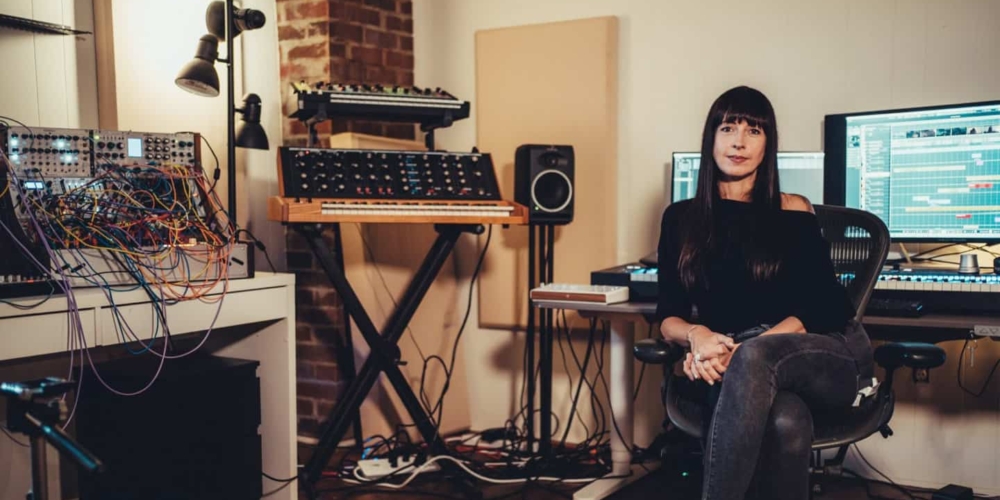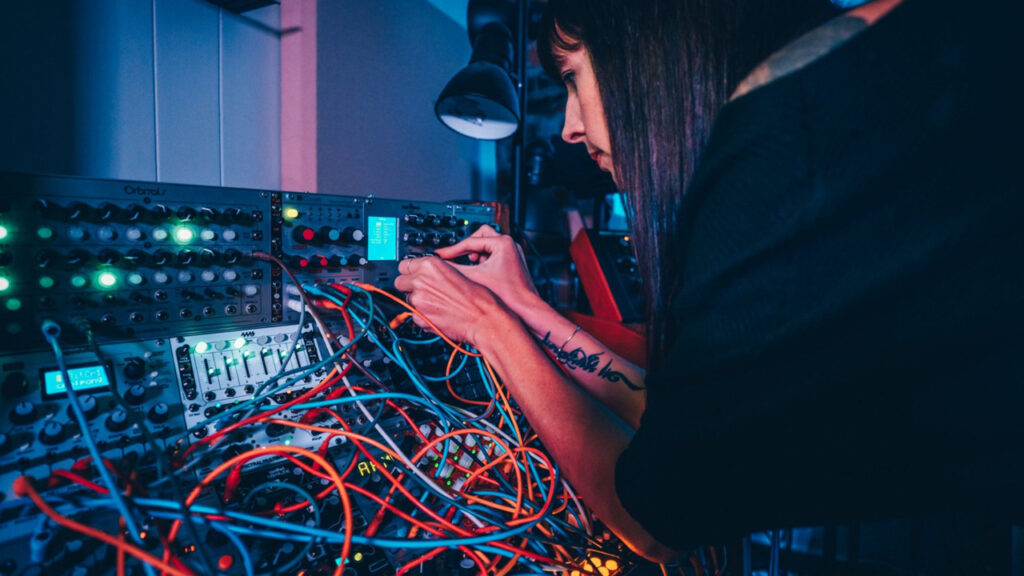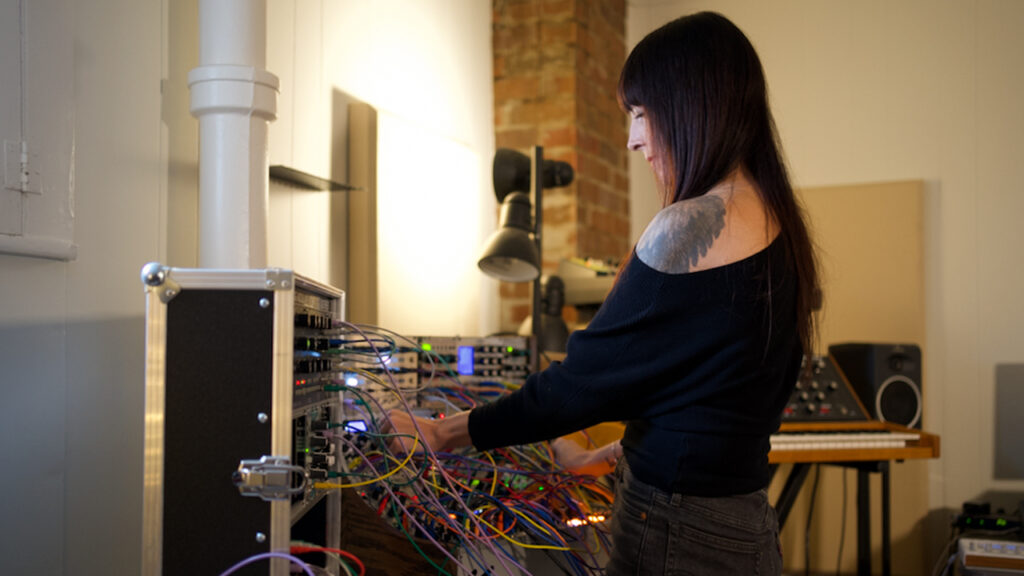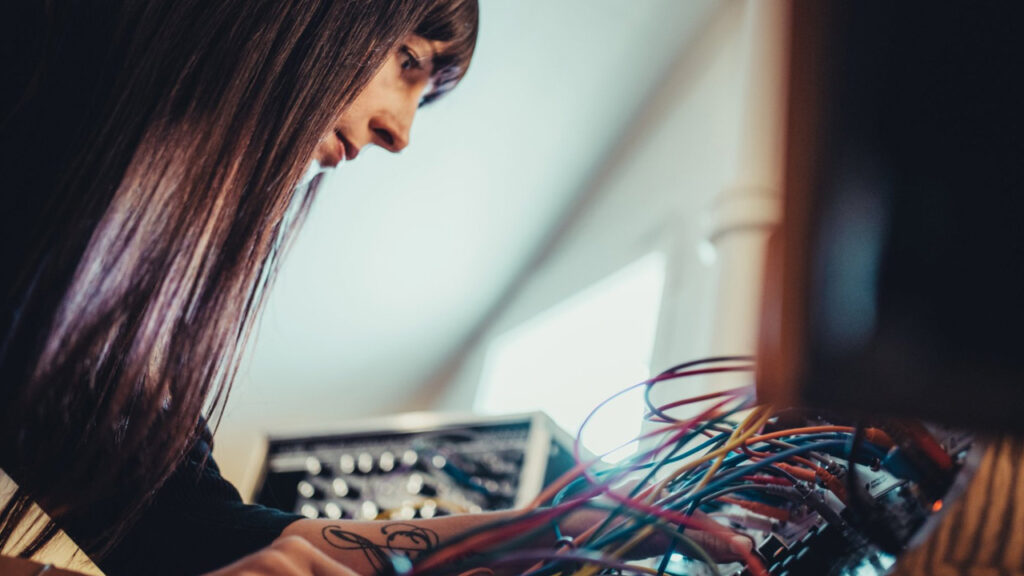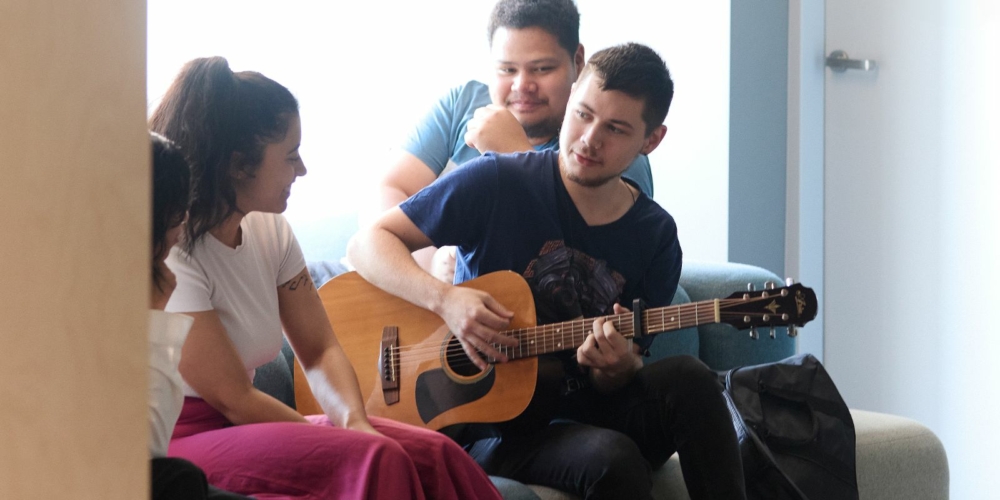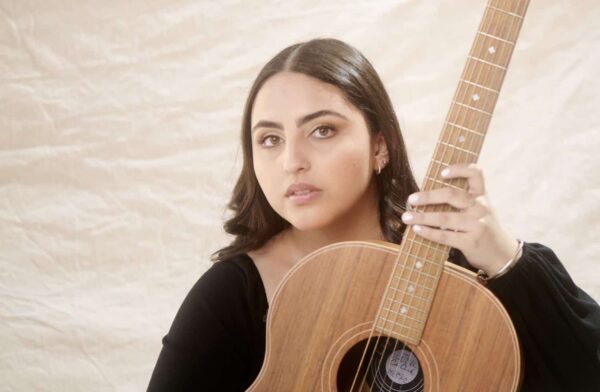Michelle Osis is a successful music composer and AIM graduate working in the booming television and film industry. Thanks to the streaming revolution, opportunities for talented music-makers are boundless and she’s been hard at work creating the sonic backbone of a series of award-winning flicks and shows.
Michelle’s built an incredible career creating music for series, documentaries and feature films. Her credits include: A Little Bit Behind, Let It Rain, Bamboozled and most recently, the documentary series The Nature of Things: The Science of Fear which was narrated by David Suzuki. We caught up with Michelle to chat about her memorable moments, breakthroughs and advice for budding composers looking to create a life in music.
What felt like your first “big break” as a composer? What led you there?
Michelle: I’d have to say landing my first feature film (Juggernaut dir. Daniel DiMarco). The opportunity to pitch on the film came through the Canadian Film Centre (I attended the CFC’s Slaight Music Residency program in 2014). It was such an incredible experience and one of my favourite film scores I’ve worked on to date. I was also very lucky to record Mark Korven’s famous Apprehension Engine which you can hear throughout the film.
What’s next for you?
Michelle: Excited to be writing music for Season 2 of Zak Bagan’s The Haunted Museum series with Terry Benn and David Arcus. I’ll also be working on a documentary in early 2023. But before that, I’m going to have some time off for a couple of months in Oz!
What’s involved in writing music for The Haunted Museum?
Michelle: We watch the fine cut of the episode and take notes, then we jump on a spotting call with the producers and watch the episode together. On the call we discuss instrumentation, tone, the shape of cues, etc … there’s normally temporary music in the episode which can be a great reference to what they’re looking for. Then, myself and my co-writers (Terry Benn and David Arcus) have a creative discussion about instrumentation, themes and ideas. We also set up a working cue sheet online (we use a program called CueDB which I highly recommend!) and we split the cues between the three of us and then start scoring!
We have a shared Dropbox where we share elements we’re going to use on the episode for consistency of sound and then upload our stems. We have roughly a week to turn around an episode (this also involves conforming to new edits, revisions and stem delivery). It’s a very quick turnaround so great time management is essential for working in TV.
How did you get the gig and how do you work with the creators to develop the soundtrack?
Michelle: I am very lucky as I have an agent here in Canada! They reached out to me to see if I would be interested in pitching on the series, and then a few weeks later I found out I landed the series!
What are you most excited about?
Michelle: I have to say scoring and collaborating with my team has been the most exciting! The Haunted Museum is an anthology series based on frightening tales behind the spooky relics which are on display in Zaks Bagans Las Vegas museum. Every episode has a unique story so deciding on themes and elements has been a lot of fun!
Learn more about our Bachelor of Music (Composition and Production) course here.
What have been the most incredible “pinch yourself” moments of your career so far?
Michelle: I’d say being nominated for a Canadian Screen Award three years in a row has definitely been one of those pinch yourself moments. And another moment would be for a feature film I recently worked on is having its world premiere at TIFF!
What’s a typical day for you? What’s been your least typical day?
Michelle: My typical day lately has been waking up early, have a couple of morning coffees, set a daily to do list, check emails, dive into work, go for a bike ride with my partner in the afternoon, head back to the studio for a night shift, and shut down around 10. My least typical day lately has been (hate to say it) not having time off.
What makes a great composer or producer (or musician, industry professional, etc – adapt to correct role)?
Michelle: Musical ability and creativity, solid communication skills, collaboration, attention to detail, problem solving, time management are important tools to have. Being great, I feel it’s about a consistency in quality, and possessing an exceptional level of craft.
What are your Top 3 pieces of advice for students dreaming of a creative career?
1. Always keep learning and honing skills.
2. Go to as many events, seminars, film events as you can and get talking with fellow composers, directors and producers key creative. Building working relationships, and networking is crucial to becoming a working composer
3. Be true to yourself about what you really want and start building that.
What is the future of your industry/field, in your opinion?
Work is booming in film & TV! Lots of new films and shows are being made, which is great for anyone looking to start a career as a film composer!
What are the 2 most valuable lessons you learned from your time at AIM?
Sticking to your goals until you achieve it has been a pretty big one for me, also the importance of building a network both socially and professionally. A great thing about AIM is the diversity of the student body. There are students from different backgrounds and cultures with a massive range of experiences and perspectives. Networking is a valuable skill I continue to develop throughout my career, and on a personal note I’ve made some great friends I know I can count on.

